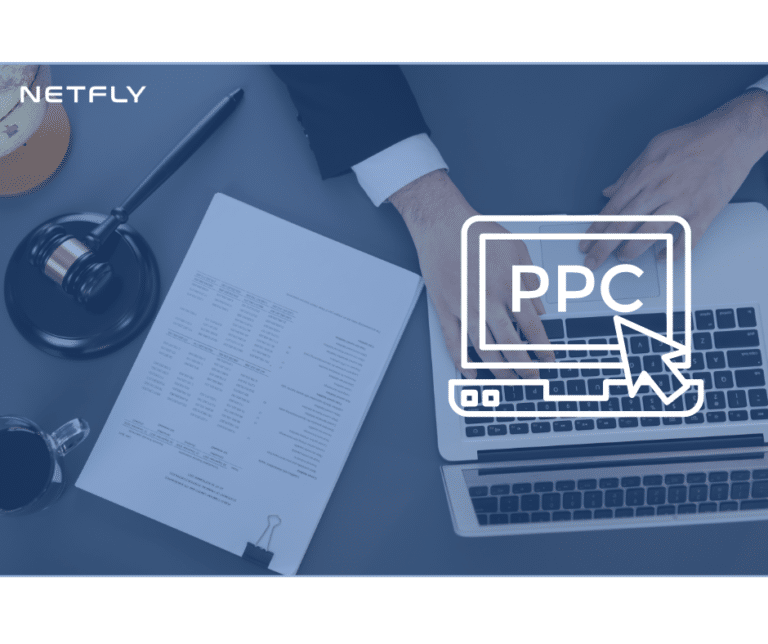Imagine your law firm’s website as a bustling city where every street corner needs a clear sign pointing potential clients in the right direction. You’ve probably heard about SEO, but have you considered how tailored keyword research, on-page optimization, and local SEO strategies could transform your online visibility? By carefully analyzing competitors and focusing on long-tail keywords, you can create content that truly resonates with your audience. And that’s just scratching the surface. Let’s explore how these strategies can be fine-tuned to establish your authority and improve your search engine rankings effectively.
Key Takeaways
- Conduct thorough keyword research focusing on long-tail keywords to attract targeted clients.
- Optimize your Google My Business profile for better local search visibility.
- Regularly create high-quality, informative content addressing common legal concerns of your target audience.
- Build high-quality backlinks through guest posting and collaborations to improve search engine rankings.
- Analyze user behavior with Google Analytics to make data-driven adjustments to your SEO strategies.
Keyword Research
When tackling attorney SEO, keyword research is your foundational strategy for attracting the right clients. You can’t afford to skip this vital step. Start by understanding the search intent behind the keywords potential clients use. Are they looking for general legal information, or are they ready to hire an attorney? Knowing this helps you tailor your content to meet their needs.
Competitor analysis also plays a pivotal role in keyword research. Identify who your main competitors are and study the keywords they rank for. Tools like SEMrush or Ahrefs can give you insights into what’s working for them. By analyzing your competitors, you can uncover keyword opportunities they might’ve missed, giving you a competitive edge.
Focus on long-tail keywords specific to your legal niche. These keywords generally have less competition and attract highly targeted traffic. For example, instead of just ‘divorce lawyer,’ you might target ‘affordable divorce lawyer in [Your City].’ This specificity helps you rank higher and connect with clients who are ready to take action.
On-Page Optimization
Effective on-page optimization is vital for guaranteeing your attorney website ranks well in search engines and attracts potential clients. Start by crafting compelling meta tags, which include your title tag and meta description. These elements should contain your primary keywords and provide a concise, appealing summary of what users can expect from your page. Remember, a well-optimized meta tag can greatly enhance your click-through rate.
Next, focus on image optimization. High-quality images can improve user experience, but they need to be properly optimized to avoid slowing down your site. Use descriptive filenames and alt text that include relevant keywords. Compress images to reduce load times without sacrificing quality. This ensures your site remains fast and user-friendly, which search engines favor.
Additionally, your content should be well-structured with appropriate heading tags (H1, H2, H3) that guide readers and search engines through your information. Integrate keywords naturally throughout your text to maintain readability and relevance. Internal linking is another important aspect; link to other relevant pages on your site to help search engines understand the context and improve overall site navigation. By mastering these on-page strategies, you’ll see tangible improvements in your search rankings and client acquisition rates.
Local SEO Strategies
Improving your local search visibility is crucial for attorneys who want to attract clients from their immediate geographical area. To achieve this, you need to leverage Local SEO strategies effectively. Start by claiming and optimizing your Google My Business profile. This step guarantees that your law firm appears in local search results and Google Maps. Fill out every section of your profile accurately, including your business name, address, phone number, and operating hours. Add high-quality photos and encourage satisfied clients to leave positive reviews.
Local citations are another crucial element. These are mentions of your law firm’s name, address, and phone number on other websites, such as online directories and legal platforms. Ensure that your information is consistent across all citations to build credibility and improve your ranking in local searches. Submit your firm’s details to reputable directories like Avvo, FindLaw, and Yelp.
Don’t forget to incorporate local keywords naturally into your website content and meta descriptions. This helps search engines understand your geographical focus, making it easier for potential clients in your area to find you. By strategically using Google My Business and local citations, you can greatly enhance your local search visibility and attract more clients.
Content Marketing
While optimizing for local search is essential, crafting high-quality content is equally important for establishing your law firm’s authority and engaging potential clients. A well-structured blogging strategy can greatly enhance your online presence. By regularly publishing informative and insightful articles, you’re not only showcasing your expertise but also addressing the common concerns and questions of your target audience, thereby boosting audience engagement.
Start by identifying the key topics that resonate with your clients. Think about the frequently asked questions and common legal issues they face. Crafting content around these subjects will make your blog a go-to resource. Remember, consistency is key; regularly scheduled posts foster a sense of reliability and keep your readers coming back for more.
Incorporate SEO best practices by using relevant keywords naturally throughout your posts. This ensures your content is not only valuable but also discoverable by search engines. Additionally, don’t shy away from using multimedia elements like infographics and videos to make your posts more engaging.
Link Building
Creating high-quality backlinks is an essential strategy for enhancing your law firm’s search engine ranking and establishing credibility. To achieve this, you should focus on two primary methods: guest posting and link exchanges.
Guest posting involves writing content for reputable legal blogs or websites in exchange for a backlink to your site. This not only positions you as an authority in your field but also drives targeted traffic to your website. To maximize this strategy, guarantee your guest posts are insightful, well-researched, and relevant to your practice areas. High-quality content is more likely to be shared, extending your reach even further.
Link exchanges, on the other hand, involve partnering with other reputable law firms or related businesses to exchange backlinks. This mutual benefit can significantly enhance your SEO efforts. However, be selective; only collaborate with sites that have a strong domain authority and are relevant to your legal niche. Poor-quality links can harm your SEO rather than help it.
Incorporating these link-building strategies will not only improve your search engine rankings but also enhance your law firm’s online presence and authority. Don’t underestimate the power of a robust backlink profile in achieving long-term SEO success.
Performance Tracking
To truly optimize your SEO efforts, you’ve got to focus on performance tracking. By analyzing key metrics, you’ll understand what’s working and what needs improvement. Data-driven adjustments are vital to stay ahead of the competition and guarantee your strategies are effective.
Key Metrics Analysis
Understanding the key metrics that drive your SEO performance is essential for any attorney looking to optimize their online presence and attract more clients. By focusing on competitive analysis and technical SEO, you can gain valuable insights into your website’s strengths and weaknesses. Competitive analysis involves studying your competitors’ SEO strategies, identifying their keyword usage, and understanding their backlink profiles. This information helps you pinpoint opportunities to outperform them and capture a larger share of your target market.
Technical SEO, on the other hand, guarantees your website is structured in a way that search engines can easily crawl and index. Key metrics here include site speed, mobile-friendliness, and proper use of header tags. A technically sound website not only improves your rankings but also enhances user experience, leading to higher engagement and conversion rates.
Monitoring metrics like organic traffic, bounce rate, and conversion rate will give you a clear picture of how well your SEO efforts are paying off. Tools like Google Analytics and SEMrush can provide detailed reports, helping you make informed decisions. By staying vigilant and regularly analyzing these metrics, you’ll be well-positioned to make strategic adjustments that drive continuous improvement in your SEO performance.
Data-Driven Adjustments
Utilizing the power of data-driven adjustments is essential for refining your SEO strategy and guaranteeing sustainable growth for your legal practice. By consistently monitoring performance metrics, you can make informed decisions that align with user behavior and keep up with algorithm updates. Here’s how you can leverage data for SEO success:
- Analyze User Behavior: Use tools like Google Analytics to understand how visitors interact with your site. Identify which pages they spend the most time on, where they drop off, and what content drives conversions. This insight helps tailor your content and improve user experience.
- Monitor Algorithm Updates: Search engines frequently update their algorithms, impacting your site’s ranking. Stay informed about these changes and adjust your strategy accordingly. Tools like Moz and SEMrush provide updates and recommendations to guarantee your site remains compliant and optimized.
- Track Keyword Performance: Regularly review which keywords are driving traffic and conversions. Use this data to optimize existing content and identify new opportunities. Tools like Ahrefs or Google Search Console can help you track keyword performance and refine your strategy.
Frequently Asked Questions
How Can Attorneys Effectively Use Social Media to Boost Their Seo?
You can boost your SEO by actively engaging clients on social media. This interaction generates social proof, showing search engines your relevance and authority. Consistent, valuable content further enhances your online presence and attracts potential clients.
What Are Some Ethical Considerations for Attorney SEO Practices?
Did you know 85% of consumers trust online reviews as much as personal recommendations? To guarantee ethical SEO, focus on content relevance and keyword research. Don’t mislead with false claims or manipulate search engine rankings.
How Often Should a Law Firm’s Website Be Updated for Optimal Seo?
You should update your law firm’s website regularly, ideally every month, to maintain content freshness and align with current keyword trends. Consistent updates enhance SEO, drive traffic, and keep your site relevant in search engine rankings.
Are There Specific SEO Tools Tailored for Law Firms?
Yes, there are specific SEO tools for law firms. You should use local directories and implement schema markup to improve your search visibility. These tools help you target relevant local traffic and enhance your online presence.
How Can Attorneys Measure the ROI of Their SEO Efforts?
How do you know if your SEO is worth it? By tracking keyword ranking and traffic analysis, you’ll see clear gains. Measure leads and conversions to determine the ROI of your SEO efforts accurately and effectively.
Conclusion
Think of your SEO strategy as planting a garden. By carefully selecting the right seeds (keywords), nurturing them with rich soil (on-page optimization), and watering them regularly (content marketing and link building), you’ll soon see your online presence bloom. Local SEO strategies are your fertilizers, giving you that extra boost in visibility. Keep an eye on your garden’s growth with performance tracking, making adjustments as needed. With dedication, your online presence will flourish, attracting clients like bees to flowers.










